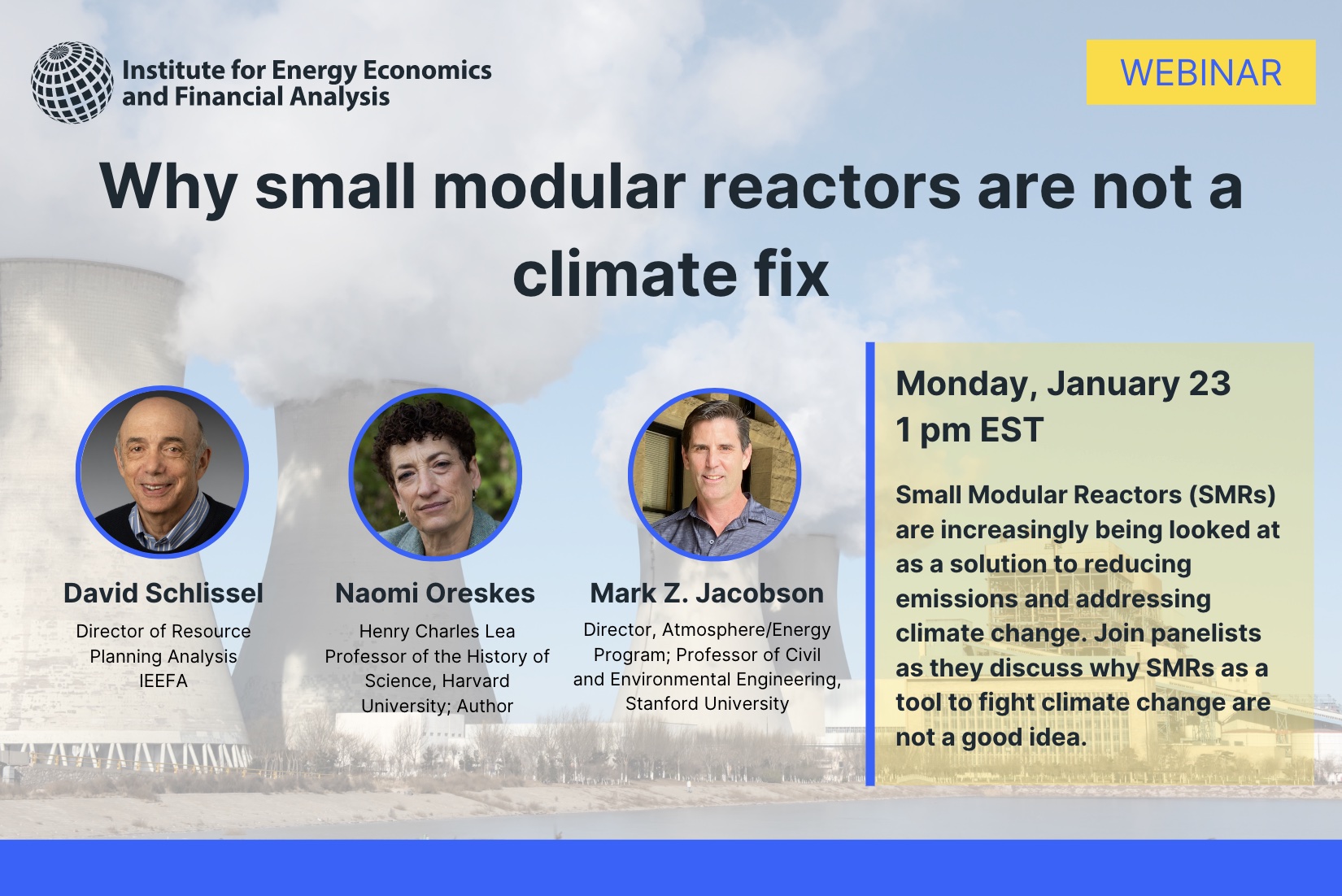Save the Date! Webinar: Why Small Modular Reactors are not a climate fix

Small Modular Reactors (SMRs) are increasingly being looked at as a solution to reducing emissions and addressing climate change. Yet like most nuclear power projects, SMRs have a history of significant cost over-runs and years-long schedule delays.
Join IEEFA analyst David Schlissel, Mark Jacobson from Stanford, and Naomi Oreskes from Harvard as they discuss why SMRs as a tool to fight climate change is not a good idea. Register today.
- What: WEBINAR: Why SMRs won’t fix climate change
- When: Monday, January 23rd at 1:00 pm EDT
- Who:
- David Schlissel, Director of Resource Planning Analysis, U.S., has over 30 years of experience as a regulatory attorney and consultant on energy and utility issues. He has testified as an expert witness before regulatory commissions in more than 35 states and before the U.S. Federal Energy Regulatory Commission and the Nuclear Regulatory Commission. Schlissel’s work has included researching, writing and testifying about the U.S. nuclear industry and the cost overruns, construction delays and other challenges associated with many nuclear projects. He has engineering degrees from MIT and Stanford University as well as a Juris Doctor from Stanford Law School. He also has studied nuclear engineering at MIT in a non-degree program.
- Naomi Oreskes is an internationally renowned earth scientist, science historian, and author of both scholarly and popular books and articles on the history of earth and environmental science. Her authored or coauthored books include The Rejection of Continental Drift (1999), Plate Tectonics: An Insider’s History of the Modern Theory of the Earth (2001), Merchants of Doubt (2010), The Collapse of Western Civilization (2014), Discerning Experts (2019), Why Trust Science? (2019), and Science on a Mission: How Military Funding Shaped What We Do and Don’t Know about the Ocean (2021). Oreskes has been a leading voice on the science and politics of anthropogenic climate change.
- Mark Z. Jacobson is Director of the Atmosphere/Energy Program and Professor of Civil and Environmental Engineering at Stanford University. He is also a Senior Fellow of the Woods Institute for the Environment and of the Precourt Institute for Energy. He received a B.S. in Civil Engineering, an A.B. in Economics, and an M.S. in Environmental Engineering from Stanford in 1988. He received an M.S. and PhD in Atmospheric Sciences in 1991 and 1994, respectively, from UCLA and joined the faculty at Stanford in 1994.












